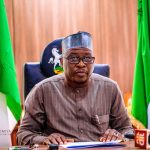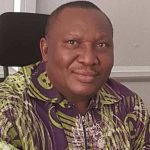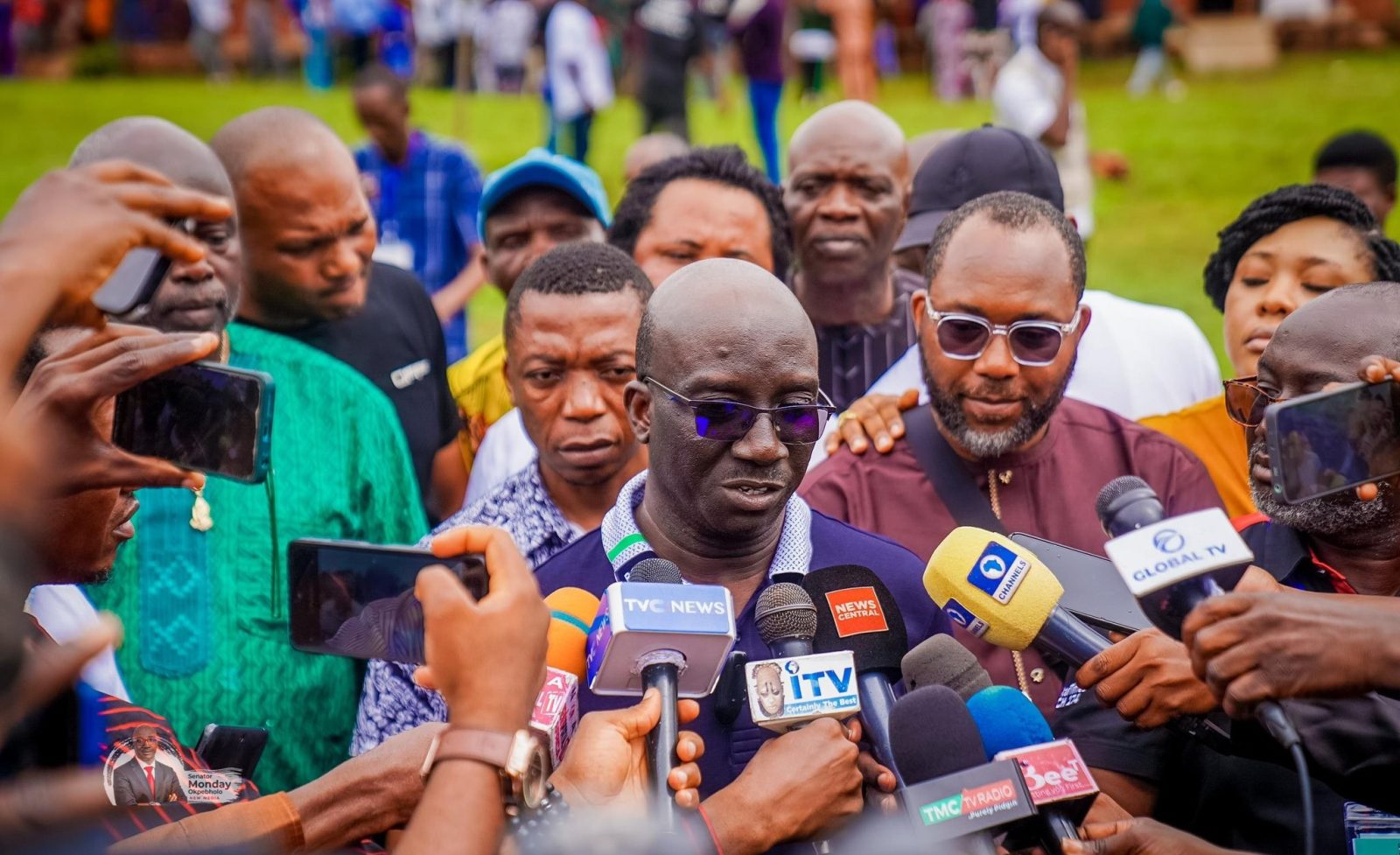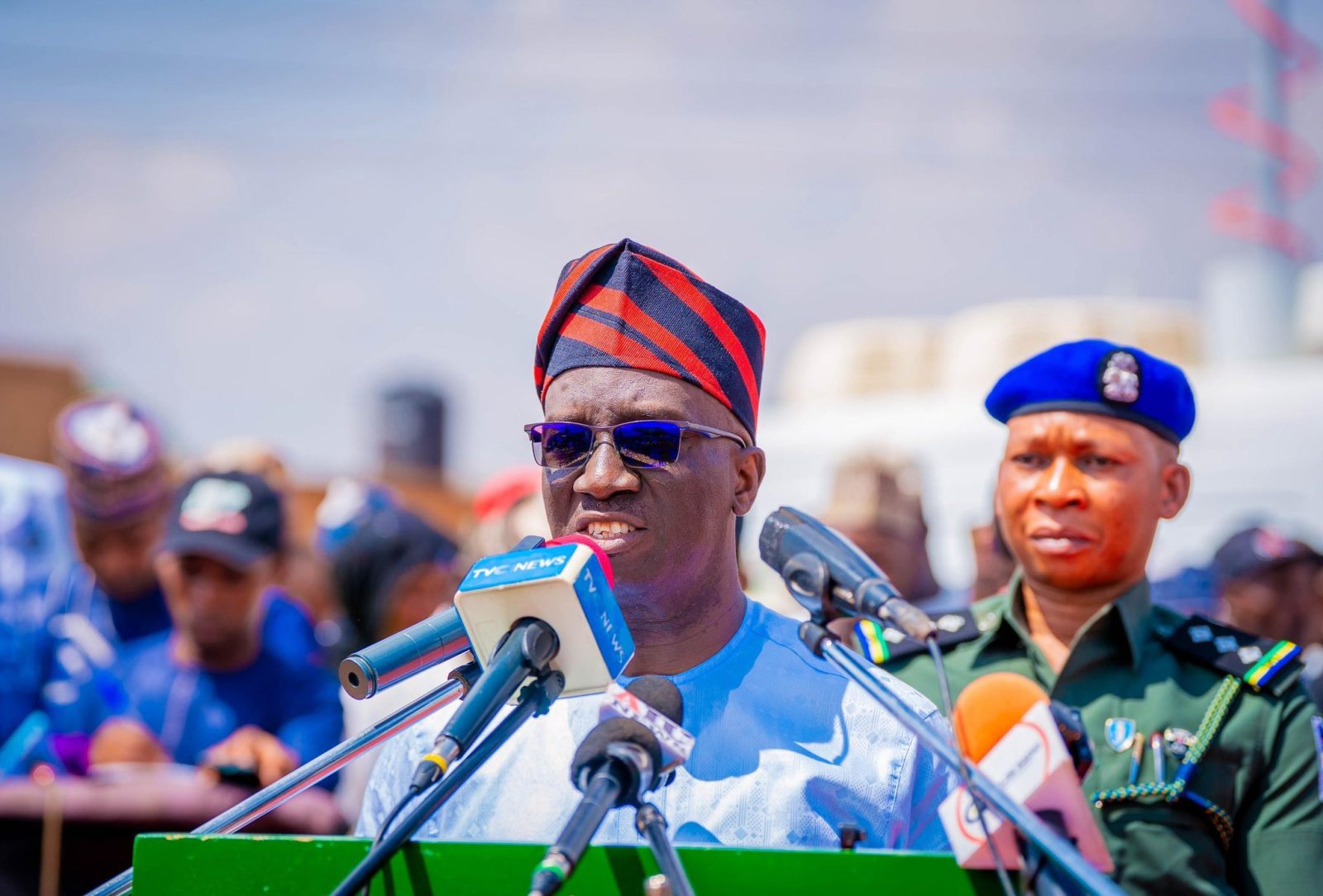Niger Republic is Nigeria’s next-door neighbour. She is not the best neighbour Nigeria would desire but, as a sovereign nation, we have no control over her. Her economic statistics, population demographics, poverty and security threats – terrorism, insurgency, and inter-communal conflicts – are too much baggage for a neighbour any nation will want to have. However, like all responsible neighbours, a threat to a neighbour is a threat on you. A fire outbreak in your neighbour’s house is a valid threat to your own safety and it is in your enlightened self-interest to ensure peace in the neighbourhood. Only then can you have a measure of peace. Relating this to countries sharing borders, Nigeria needs peace at this crucial time to address her socio-economic and security challenges.
Of recent, the peace of Niger Republic has been threatened and breached. Last week, members of the elite Presidential Guard successfully overthrew the elected government of President Mohammed Bazoum and named General Abdourahomene Tchiani as President of the National Council for the Safeguard of the Homeland. This development has effectively created instability in that country and the West African sub-region. The Nigerien experience makes it the fifth military coup in the sub-region since 2020 following earlier coup d’etat in Burkina Faso, Chad, Guinea, and Mali. As expected, the UN, USA, EU , UK, ECOWAS, Nigeria, and other world leaders have condemned these constitutional breaches. However, the world is looking to Nigeria to lead the sub-region in fighting against the contagion of coups that are destroying the democratic foundations of the past decades and turning the region into the coup epicentre of the world. The expectation is not misplaced. As the dominant regional power, Nigeria has a moral and diplomatic responsibility for ensuring stability in the neighbourhood.
There is no denying that this coup has destabilized Niger. Or that the aftermath of this destabilisation will have grave consequences on the region and Nigeria in particular. The system has notable chaos and a complete sense of unease in a country already battling with extremism and terrorism attacks from Boko Haram and Islamic State West African Province fighters in addition to exponential economic hardship. The ousted President is known for his unrelenting fight against terrorist groups within his country and the sub-region. His overthrow and the resultant instability may leave room for terrorist groups in Niger to strategize, and reinforce their actions against States within the sub-region.
Terrorism thrives in failed States with little or no legitimate government. It creates leeway for non-state actors to have a field day and act with impunity. This recent development in Niger will certainly create an additional burden for Nigeria. To be more exact, instability in Niger Republic will affect Nigeria in four significant ways. First, any security vacuum created by this instability will be used by extremist groups, criminal networks and other destabilising elements to upturn all the gains Niger and other Sahel countries in the sub-region have made over a decade in containing these groups. When these groups thrive in Niger, they attack neighbouring countries with common boundaries with Niger. Nigeria will be the main target, mainly because she shares borders with Niger across Bornu, Yobe, Jigawa, Zamfara, Katsina, Sokoto and Kebbi States. That is the longest border Nigeria shares with any country. This poses a significant risk to Nigeria’s fragile internal security. A destabilised Niger Republic will be a free breeding ground for terrorists and provide unrestricted passage to Nigeria for Boko Haram and other terrorist groups through the Diffa region.
Second, Nigeria will most likely bear the brunt of Niger’s refugee crisis. Niger Republic, which already serves as a transit point for migrants and refugees, has a high youth population and the world’s highest birth rate. Any destabilisation of Niger Republic will lead to a massive refugee movement into Nigeria through our seemingly porous borders. Most Nigeriens can trek into Nigeria. Besides, Niger is an agrarian economy. With climate change and conflict, it is only natural for their farmers and herders to migrate to Nigeria. This will compound and exacerbate our now very challenging farmer-pastoral clashes.
Third, the crisis in Niger will provide a valid threat to the growth and deepening of democracy in the West African sub-region. The ousted President’s election was the first democratic transition of power in a State that has witnessed four military coups since independence from France in 1960. This would be a reversal of all gains made therefore. Already, three countries in the West African sub-region are under military rule. Two others: The Gambia and Guinea Bissau’s democracy are being sustained by Nigeria. A fragile Niger signals susceptibility to unconstitutional rule in other West African (WA) democracies. Militarism and juntas leading many States in the West African sub-region do not inspire confidence and may be seen as retrogressive by other stakeholders. Each successful coup provides some cues or encouragement for subsequent ones. Like insurgencies, coups are rooted in governance failings, population conflicts and the nature of civilian and military relations within the state. The Nigerian State must ensure that such fertile grounds for coups are not in place in countries in the sub-region. Nigeria is working hard for more regional economic and political integration through the instrumentality of the ECOWAS and must work to forestall unsavoury political developments such as we have in Niger since crisis in any member-State sabotages the effort Nigeria is leading and jeopardises regional integration.
Fourth, the coup in Niger Republic is an affront to Nigeria’s leadership in West Africa. Aside from affecting us directly as a country, it will affect our standing as regional and continental leaders. How Nigeria, as a regional power, engages and interacts with its neighbour determines how we keep our status as a continental power. Our reputation is at stake. The world is watching how Nigeria will successfully deal with this crisis in Niger. Therefore, the world expects the Nigerian State to work unilaterally or within regional and continental institutions such as ECOWAS and AU to solve this crisis. On our part, Africa remains the centrepiece of Nigeria’s foreign policy. Our nation constitutes the conscience of the world. All these attributes entrusts Nigeria with the responsibility of championing democratic tenets in and for the continent. Failure to accomplish this sacred duty would negatively impact the global perception of Nigeria as a net contributor to global power dynamics. In the execution of her sacred role, Nigeria must send a clear message that not again on her watch will a State on the continent – particularly on the West Coast – fall to the cold hands of military juntas. The world must never perceive Nigeria as a fallen power or a toothless bulldog that barks but cannot bite.
This crisis is a significant challenge for President Bola Ahmed Tinubu of Nigeria who doubles as the leader of ECOWAS. Both roles put him at the fore of dealing with this crisis. Thankfully, he has vowed to show no tolerance for coups in the region. By that proclamation alone, he has started the hard work to re-establish Nigeria’s regional leadership and end the crisis in Niger. He started well by following a clear strategy for dealing with the situation by first condemning the coup in toto and commencing diplomatic engagements to stem the tide.
President Bola Tinubu sent a planeload of his senior officers to press the Niger military to abort the takeover. Although the mission may be unsuccessful at the moment, this kind of leadership from within the region is commendable. The new Nigerian and ECOWAS leader has continued to engage with world leaders such as the US Vice President, the Secretary-General of the UN, Heads of State of countries within the sub-region and other vital stakeholders to fashion out the best multilateral approach of a lasting solution to the problem. He is galvanising the ECOWAS and AU for a collaborative institutional approach. Yesterday 30th July in Abuja , ECOWAS leaders made a cocktail of significant decisions aimed at dislodging the junta . It includes imposition of no flight zone , air and land boarder closure , financial sanctions, without ruling out the use of force . The international community will be watching out how far ECOWAS can go in its resolve to restore constitutional order .
In searching for the results to this political crisis, we must come to terms with its anatomy by conducting a near infallible diagnosis of the symptoms it presents. There is a nexus of local, regional and global factors at play in this crisis. We must highlight this connection, especially while articulating a comprehensive solution to this crisis and laying the foundation to prevent a coup d’etat from being staged in any other country in the sub-region going forward. This is especially important given the role France, as former colonial masters with more cultural, political, economic and military ties, plays in the emerging milieu. The ousted President has a robust link with France and that window can come in handy. However, recent global events have seen the possible push by the Russian/Chinese hegemonies to take control of some African countries and push out the US and her Western allies. Some African militaries are counting on this emerging global divide and are taking their chances knowing there are opportunities of having the backing of either of the powers after a coup.
Every international or multilateral intervention must dispassionately examine the root cause (s) of the leadership crisis and the unmet needs or unresolved conflicts that are driving coups. There is the need and no effort should be spared to strengthen Niger’s institutions and broader civil society, provide more economic investments and support intense diplomacy. The latter may include the use of military force to produce regime change. The enduring solution to the Nigerien debacle is this. Nigeria, other principal voices in the subregion and global actors must work in collaboration to pull Niger back from this or any future military dictatorship.























Leave a comment